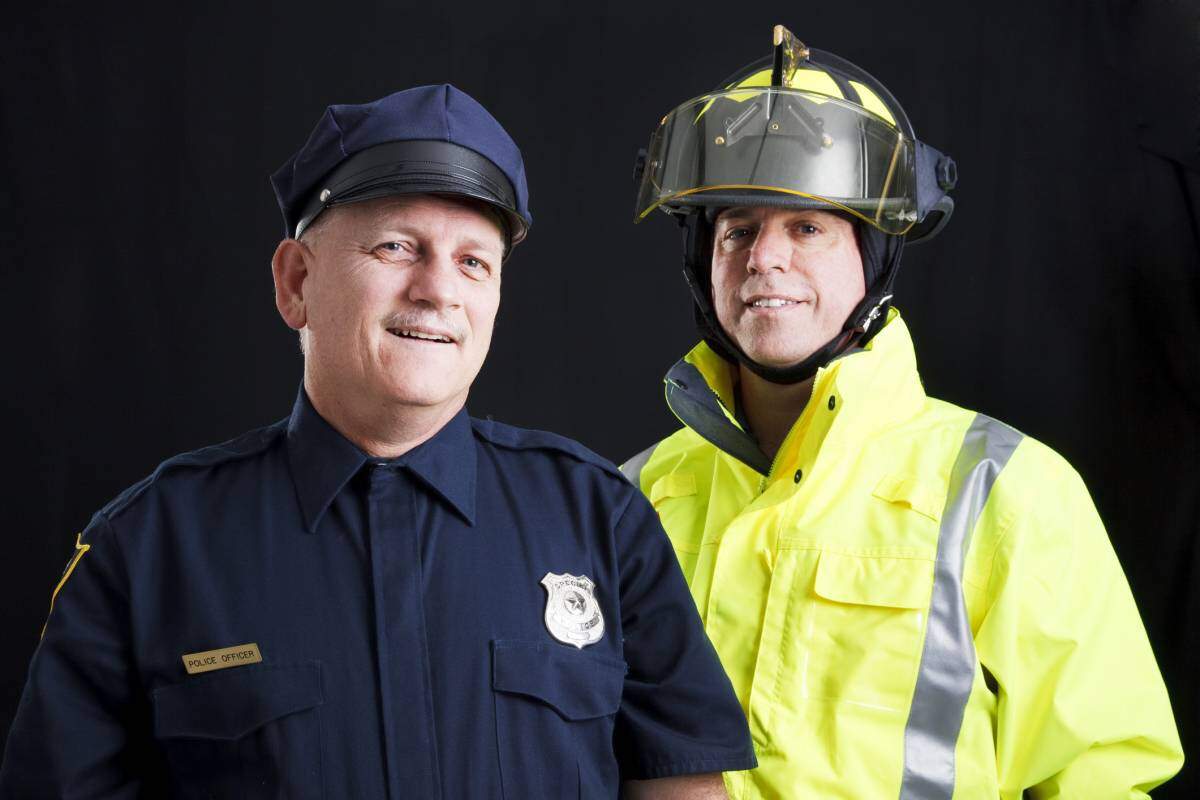These brave men and women put their lives at risk to protect us, and the process can take a toll on their health and well-being.

Being a police officer or firefighter is one of the most stressful careers a person can choose. These brave men and women put their lives at risk to protect us, and the process can take a toll on their health and well-being. The risk of cardiovascular illnesses and other related health problems are much higher in these two professions compared to other professions. In this article we will discuss cardiovascular illnesses affecting police and firefighters, and what their rights under the law are.
Cardiovascular Problems are Quite Common
Cardiovascular problems such as heart disease and stroke are quite common among police and firefighters, in fact they are among the leading causes of death across the nation. These problems affect both sexes and all ethnic and racial groups equally. Chronic stress is believed to be a direct cause of cardiovascular problems. In fact, firefighter and law enforcement officers have almost double the risk of these types of illnesses compared to the rest of the population, where they are already way too common.
Contributing Factors for Cardiovascular Illnesses
Some of the stress induced factors that contribute to cardiovascular and lung illnesses include high cholesterol, diabetes and high blood pressure. These problems are three times higher in these professions compared to the general population, and this often leads to early retirement. What is more surprising is the fact that it is not just the risks associated with the job that create high stress levels. The very nature of the organizations they work for can raise the stress levels. Detailed and difficult paperwork, constant taking of orders, and high detail job requirements can contribute to stress and related health problems.
Workers’ Compensation Benefits for Firefighters and Police
The workers compensation system is designed to protect the workforce from injury or illness that arise out of a direct consequence of the job. Regardless of whether the injury is a result of work action such as a slip and fall accident on the job, or a result of exposure to harmful chemicals in the workplace, the workers are covered. Even if the injury or illness manifests after years of exposure or constant repetitive motion, the worker will be entitled to workers compensation benefits.
The issue with illnesses such as cardiovascular problems is that it may sometimes become difficult to prove that the illness is a direct consequences of the job. The insurance company may contend that the illness is pre-existing or is a result of factors unrelated to employment. In such cases, it becomes extremely important to hire the services of an experienced St. Louis workers compensation lawyer. Remember, treatment for cardiovascular problems can be very expensive, and you should not give up your rights at any cost. Your lawyer will help navigate the maze, and ensure that you get the benefits that you deserve.
Contact a St. Louis Work Injury Lawyer
If you were injured at work, it is important to speak to a workers compensation lawyer about your legal rights and options. Please contact me, attorney James M. Hoffmann, for a free consultation about your case. I can help you get the workers compensation benefits you deserve. There are no upfront fees and I only get paid if you recover. I can analyze your case to determine if you can also file a personal injury claim.
Work Related Injuries
Work Related ACL Injury
Leg Amputation
Finger Amputation
Ankle Injury
Ankle Replacement
Arthroscopic Surgery
Work Related Arthritis
Accidental Asphyxiation
Work Related Asthma
Avulsion Injury
Back Injury at Work
Back Pain from Work
Lower Back Pain at Work
Chronic Back Pain
Head Injury Internal Bleeding
Internal Bleeding after Injury
Blood Related Illness
Broken Bones
Brain Injuries
Traumatic Brain Injury
Bursitis Work Related
Burn Injury at Work
Electric Burn
Chemical Burn
Calcaneus Fracture
Sudden Cardiac Arrest
Cardiovascular Disease
Carpal Tunnel Work Related
Cartilage Injury
Cervical Disc Replacement
Cervical Fusion
Chronic Illness
Work Related Chronic Pain
Work Related Concussion
Contagious Disease
Work Related COPD
Skin Corrosion
CRPS Disease
Crush Injuries
Cubital Tunnel Syndrome
Work Related Death
Degenerative Bone Disease
Degenerative Disc Disease Work Related
Reflex Sympathetic Dystrophy
Work Related Tennis Elbow
Elbow Injury
Epicondylitis at Work
Work Related Eye Injury
Fibromyalgia
Work Related Foot Injuries
Work Related Injuries to the Hand
Hand Arm Vibration Syndrome
Work Related Head Injury
Closed Head Injury
Open Head Injury
Work Related Hearing Loss
Heart Attack Work Related
Stroke at Work
Heat Stroke at Work
Intracerebral Hemorrhage
Hernia Work Related Injury
Work Related Herniated Disc
Hip Fracture
Hip Replacement
Hip Injuries
Intracranial Injury
Broken Jaw
Work Related Knee Injuries
Knee Fracture
Laceration
LCL Injury
Legionnaires Disease
Ligament Tear
Limb Loss
Lumbar Disc Replacement
Lumbar Fusion
Lumbar Spinal Fusion
MCL Tear
MCL Injury
Meniscus Tear
Work Related Mental Illness
Mesothelioma from Work
Work Related Muscle Problems
Work Related Neck Pain
Work Related Neck Injury
Nerve Damage from Work Related Injury
Neurological Disorders
Occupational Disease
Organ Damage
Pain and Suffering from Work Related Injury
Paralysis
Patella Fracture
Pelvic Fracture
Plantar Fascitis
Pre Existing Work Related Injury
Work Related PTSD
Radiation Sickness
Repetitive Stress Injury
Rhabdomyolysis
Rotator Cuff Tear
Rotator Cuff Surgery
Work Related Rotator Cuff Injury
Sciatica Work Related
Shift Work Disorder
Shoulder Fusion
Shoulder Impingement
Shoulder Injury
Work Related Shoulder Pain
Sick Building Syndrome
Skull Fracture
Spinal Cord Injury at Work
Spondylolysis
Sprain at Work
Work Related Repetitive Strain Injury
Work Related Stress
Stress Fracture
Subdural Hematoma
Work Related Tendonitis
Lost Tooth at Work
Trigger Finger Work Related
Vertebroplasty
Vision Impairment
Lost Vision at Work
Work Related Wrist Injuries
